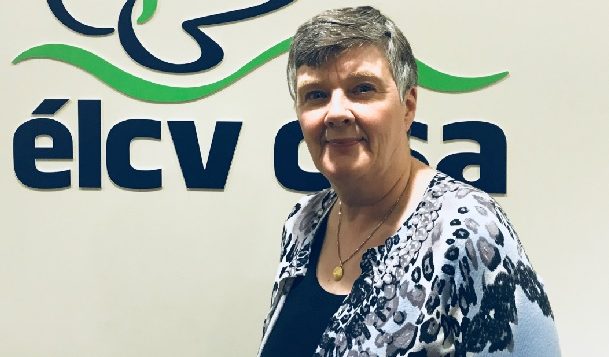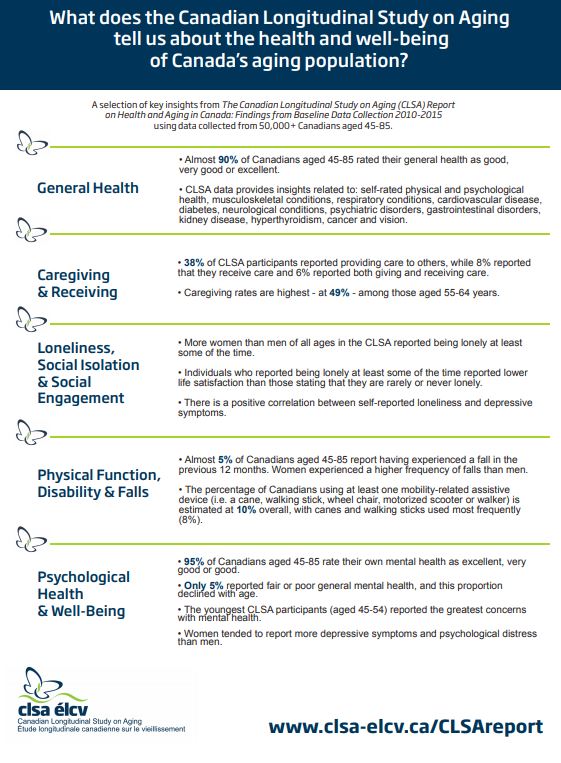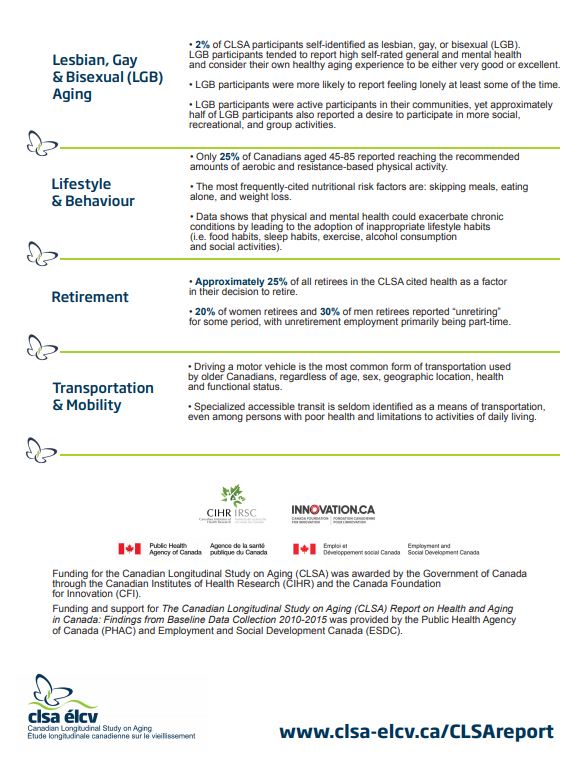In-depth, long-term study on ageing
Canadian researchers are looking into what is likely a world first kind of study. Although other studies have looked at individual aspects of things like health, or psychological issues, this one looks at many issues together and the correlation to each other over a period of 20 years in the life of the participants.
Cristina Wolfson (PhD) the co-principal investigator of the Canadian Longitudinal Study on Ageing (CLSA). She is professor at McGill University in the Faculty of Medicine, and research scientist at the Research Institute of the McGill University Health Centre (RI-MUHC) in Montreal
ListenThe huge study involves principle researchers at McGill University in Montreal, McMaster University in Hamilton, Ontario, and Dalhousie University in Halifax Nova Scotia and about 200 other colleagues who recruited subjects from across the country, some 50,000 participants.

Christina Wolfson (PhD), CLSA co-principal investigator, scientist from the Brain Repair and Integrative Neuroscience (BRaIN) Program at the Research Institute of the MUHC
and professor at McGill University’s Departments of Medicine and Epidemiology, Biostatistics and Occupational Health. Photo: RI-MUHC
The study launched in 2010, looks at a vast number of aspects of ageing in Canada from social connections, jobs, emotional issues, memory loss, health and the relationhips among these and how each of these, (and others) may affect the others.

Christina Wolfson (PhD), CLSA co-principal investigator and her team at the Montreal data collection site located at the Research Institute of the MUHC. In addition, the RI-MUHC houses the CLSA Statistical Analysis Centre where Dr. Wolfson’s team is responsible for examining the quality and reliability of the data and prepares the data for release to researchers. Photo: Ri-MUHC
A 20 Year Study
The study will follow the subjects for 20 years to note changes as they age. The youngest subjects are 45 years of age and range up to 85, but regardless of age, the study will follow them through life for the next twenty years. Other participants will not be recruited to replace any who die.
Initial results.
Participants will be questioned every three years on this extensive and wide-ranging examination on how people age, physically, emotionally, and financially.
About 20,000 are interviewed by phone, the remaining 30,000 are interviewed in person.
The first results are out, and generally people feel their ageing is going well, especially regarding their physical health, with 90% reporting overall health at good, very good, or excellent.

Initial results after the first few years of the study shows most feel they’re ageing well, at least physically, although loneliness does affect many people, especially as they get older. Photo: Michael Smith Foundation For Health Research-via CBC
Highlights of the report- full report in links at bottom
However, 20 per cent said they felt lonely at some point, and that it increased with age, and was more common in women.
Lonelines can have a negative effect on well-being and even physical health.
A noticeable percentage of retired participants had gone back into the job market (20% of women- 30% of men) due to financial need.
The study seeks in part to identify factors that allow some people to age well, while others do not.









For reasons beyond our control, and for an undetermined period of time, our comment section is now closed. However, our social networks remain open to your contributions.